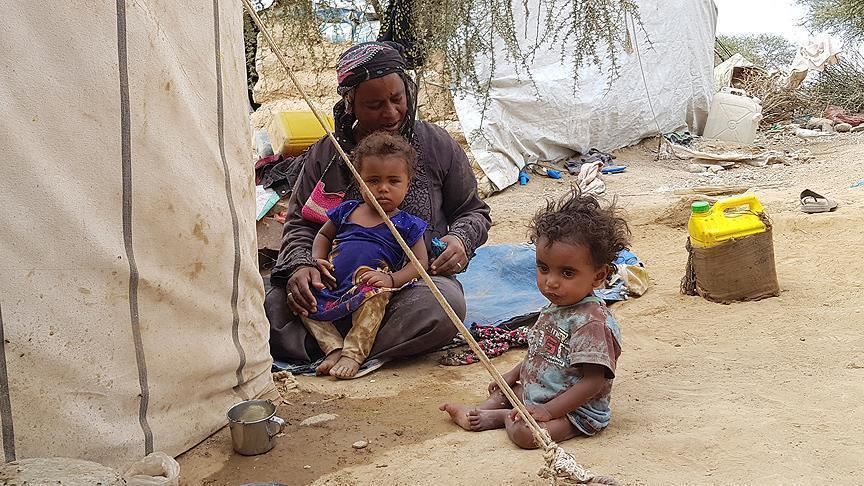Yemen’s Houthi rebels ‘restricting aid’: UN
Group tried to levy 2% tax on aid groups, divert supplies, compel humanitarians to sign dodgy documents, says UN aid chief
 FILE PHOTO
FILE PHOTO
UNITED NATIONS
UN aid chief Mark Lowcock warned Tuesday of severe and unfair restrictions being placed on humanitarians in Yemen and singled out the Iran-aligned Houthi rebel group as the worst offender.
Addressing the UN Security Council in New York, Lowcock, the emergency relief coordinator said the Houthi rebels who control the capital, Sanaa, and much of the north, have stepped up attempts to divert and control aid flows in recent months.
“Last year, they issued more than 200 regulations on humanitarian action. By the end of the year, the number of reported incidents disrupting assistance had risen by a factor of six,” said Lowcock. “About half these incidents constrained movements of relief supplies or staff, and about a quarter involved attempts to influence decisions on who receives help or otherwise interfere with programs.”
Restrictions on aid workers are a problem across Yemen, said Lowcock, but while 30% of schemes get blocked in the south, humanitarians see 40% of their projects stalled in the Houthi-run north.
“Ansar Allah authorities asked NGOs to sign agreements that would not be consistent with humanitarian principles,” said Lowcock, using an alternate name for the Houthi tribal militia of mostly Zaydi Shiites. “It has also been-suggested that NGOs pay a 2 percent tax to fund the authorities’ aid coordination body. The situation is unacceptable. Stopping the world’s largest aid operation would be fatal for millions of people.”
Yemen has endured years of tumult since the Iran-aligned Houthi rebel movement ousted President Abd-Rabbu Mansour Hadi's government from Sanaa toward the end of 2014, prompting military intervention in 2015 by a coalition led by Saudi Arabia and the United Arab Emirates, which sought to restore Hadi’s UN-recognized government.
The conflict has led to the world’s worst humanitarian crisis, with more than 100,000 people dead and 24 million civilians, or 80% of the population, needing handouts to survive. Aid groups aim to reach 15.6 million people this year, the UN says.
“So far, we have not heard reports of famine-like conditions returning in high-risk areas,” Lowcock told council members.
“In late 2018, we heard such reports from many sources even before the formal assessments had been completed. I believe high levels of aid delivery have helped,” he said.








